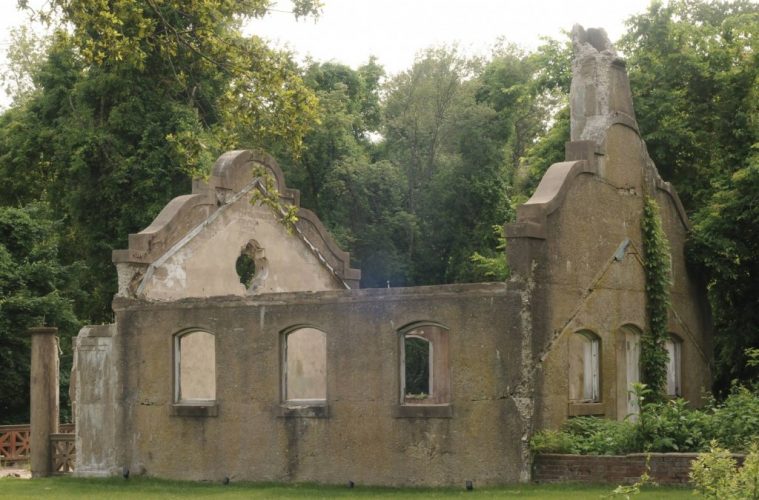Can a garden have a soul mate? If so, the once overgrown and neglected garden at Thomas Proctor’s old estate in Topsfield has found the one gardener in the world who was meant to discover it and coax it back to glory.
In 2005, the homeowner, a passionate gardener (and private in nature, requesting anonymity), started out with a simple plan to clear some space in the backyard. As she peeled away choking vines and tangled underbrush, the bones of a glorious walled garden, complete with a small chapel, emerged bit by painstaking bit. Planted decades ago by Proctor, a successful farmer and dedicated preservationist who oversaw a 4,000-acre estate before he died in 1949, the garden remained virtually uncleared when the home was built in 2000.
Undeterred by the snarled brush, this lifelong gardener grabbed a shovel and set to work. She did not get very far.
“I put my shovel in and kept hitting rock,” she says with a laugh. “I would move it to the left and hit rock. I would move it the other way and hit rock.” But the rock was actually the beginning of a walkway laid down decades ago for Proctor’s legendary greenhouses. With the discovery of that first walkway—one of many—she was about to uncover all that remained of Proctor’s extensive gardens.
Seven years later, the gardens are a romantic vision of Roman-like ruins spilling over with blooming flowers, neatly clipped boxwood, and fragrant lavender nestled among the columns the homeowner believes once supported a pergola. Entirely enclosed by a low wall, the gardens stand as testament to a time long forgotten, when Proctor nourished rare specimen trees in the garden (some of which later supplied the Arnold Arboretum in Boston) and grew orchids in grand style in the greenhouses.
With every foot of cleared overgrowth, new surprises surfaced. At the very back of the property stands a small chapel and a gardener’s house, once connected by a copper roof, the green outline of which remains visible. Small touches, like the matching stone shamrock mosaics in the chapel and on a greenhouse floor, reveal the detail Proctor gave to his gardens.
For the homeowner, the project has become one of stewardship and devotion. “It is a strange sensation to feel that fate has landed something in your lap,” she says. “It couldn’t have fallen into better hands.”
And what would this private homeowner say to Proctor if he stepped through the very gates that long ago welcomed him home to his grand estate?
“I would say, ‘Welcome home, Mr. Proctor. Here are your gardens for you,’” she says.

